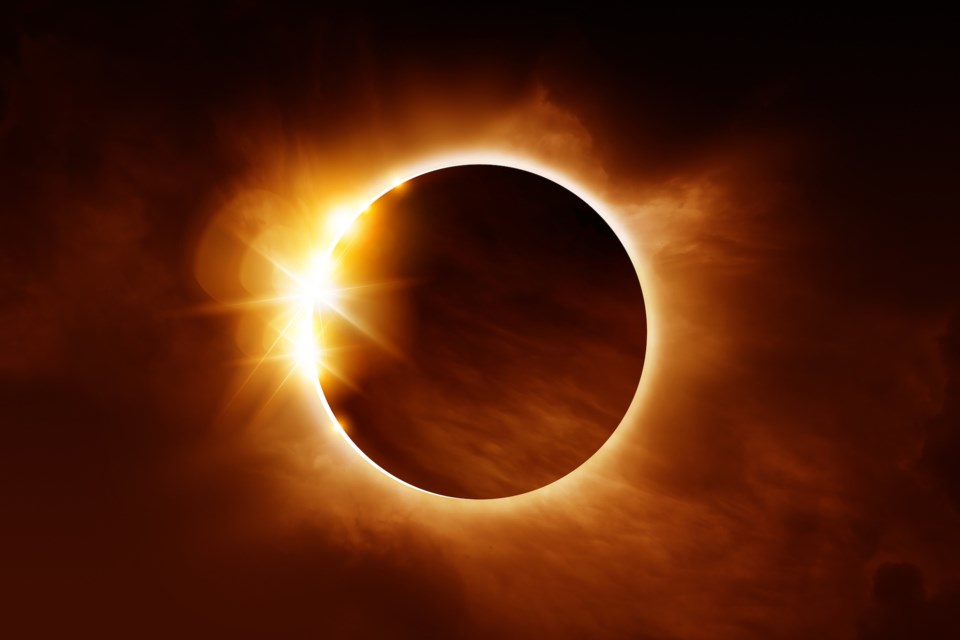Don't look at the sun.
It's a lesson taught at an early age, either by being told or learning the hard way, as they say.
But could a school board be held liable for a student who sustains an injury from looking up at the solar eclipse or from walking home in the dark on April 8 if schools remain open?
It's unlikely, said James Butler, a student of law at Matlow, Miller, Cummins, Thrasher LLP in Cambridge.
"Without digging into the specifics, my first answer is I don’t think there would be any liability," Butler said.
"If someone looks at it, it’s unclear what the school should have done to prevent that."
Butler said it's plausible a teacher could mishandle the eclipse causing an injury in which legal action could be pursued. However, it's unlikely the claim would gain legs within the legal system.
Likening it to a natural disaster, like an earthquake or tsunami, it’s hard to prove fault.
The Waterloo Catholic District School Board has already rescheduled an upcoming Professional Activity Day from April 19 to April 8, saying the decision was made out of "an abundance of caution for student and staff safety."
The public board, meanwhile, has yet to make a decision on shifting a PD Day currently scheduled for April 10. In a statement, the WRDSB said it's working with Region of Waterloo Public Health to "to better understand ways to mitigate any risks posed by the solar eclipse."
So, what's the actual risk? According to University of Waterloo researcher Roan Haggar, there's no greater physical risk from the rays of the sun during the solar eclipse than any other day.
"It’s always a bad idea to look at the sun," Haggar said.
"The only reason it's a concern is because there’s likely more people who want to look at it. Some people think if 99 per cent of it is covered up, its okay to look at, but it’s not. That's the concern around it."
Hagger hopes schools and students take the opportunity to educate themselves on the astronomical occurrence.
By doing it safely, it can be an interesting and informative opportunity, Haggar said.
"An eclipse is one of those things like crossing the street, it’s only dangerous if you're not well prepared for it," he said.
"It’s weird to think we're on this ball of rock but when you see the moon shift across the front of the sun, it becomes a bit more real. The sun is 400 times bigger than the moon but also about 400 times further away."
The April 8 eclipse begins at 2:03 p.m. and will end at 4:30 p.m. in the region, lasting two hours and twenty seven minutes. It's the first total eclipse since 1925 and it won't occur again until 2144 in Southern Ontario.
While he can't foresee an issue, Butler said he understands why school boards would make the decision to move a PA Day.
"It makes sense to me that they've done this but I don’t think there’s any real responsible prospect of litigation," Butler said.
For more information visit uwaterloo.ca.
